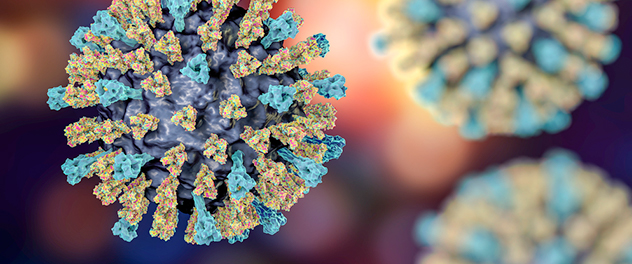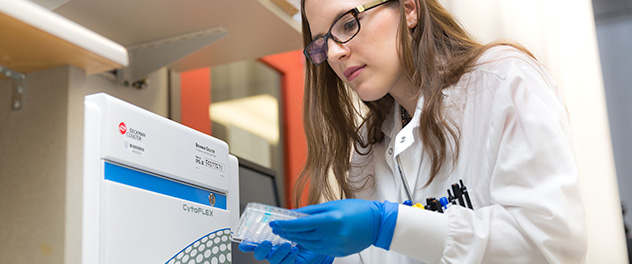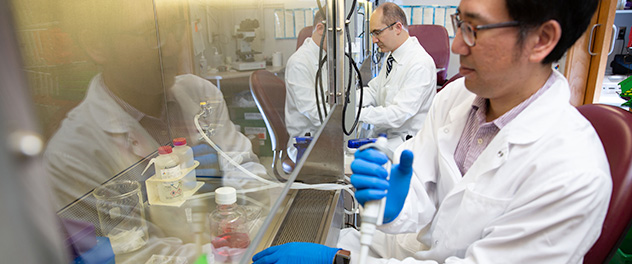-

Harnessing the power of the immune system
The T Cell Engineering Laboratory at Mayo Clinic is harnessing the power of the immune system by genetically modifying cells so that they are equipped to kill cancer.
-

Individualized immunotherapy
Research in Dr. Kenderian's lab provides a solid interdisciplinary collaboration between basic science, clinical sciences and translational approaches to bring new discoveries in cancer treatment to patients.
-

Leading the way in CAR-T cell therapy
Research in Dr. Kenderian's T Cell Engineering Lab is the catalyst for next-generation CAR-T cell therapy, treating various types of cancer with fewer side effects and lower cost.
Overview
The T Cell Engineering Laboratory at Mayo Clinic focuses on the development, optimization and translation of chimeric antigen receptor (CAR)-T cell therapy and engineered cellular immunotherapy for people with cancer and autoimmune diseases. Saad J. Kenderian, M.B., Ch.B., leads a research team of staff with expertise in hematology, oncology, neurology, immunology, molecular medicine and immune therapy to develop new treatments for cancer in his T Cell Engineering Lab.
CAR-T cell therapy is a novel immunotherapeutic approach to treat cancer. A chimeric antigen receptor is a synthetic antibody on the surface of T cells that enables T cells to recognize cancer cells. The most successful CAR-T cell therapy to date targets CD19 (CAR-T19). This therapy was first approved by the U.S. Food and Drug Administration in 2017 to treat B-cell lymphoma and leukemia.
The process of making and administering CAR-T cells is complex, labor-intensive and expensive. The first step occurs when T cells are isolated from a person with cancer by a process called apheresis. Then the T cells are sent to a laboratory where they are stimulated and transduced with a viral vector to generate CAR-T cells. After the cells are generated, patients receive low-dose chemotherapy followed by infusion of these cells. CAR-T cell therapy results in unique and serious complications that require close medical attention and, in most cases, intensive care. These complications include developing cytokine release syndrome and neurotoxicity.
Affiliations
The T Cell Engineering Lab is affiliated with other Mayo Clinic research areas, including: